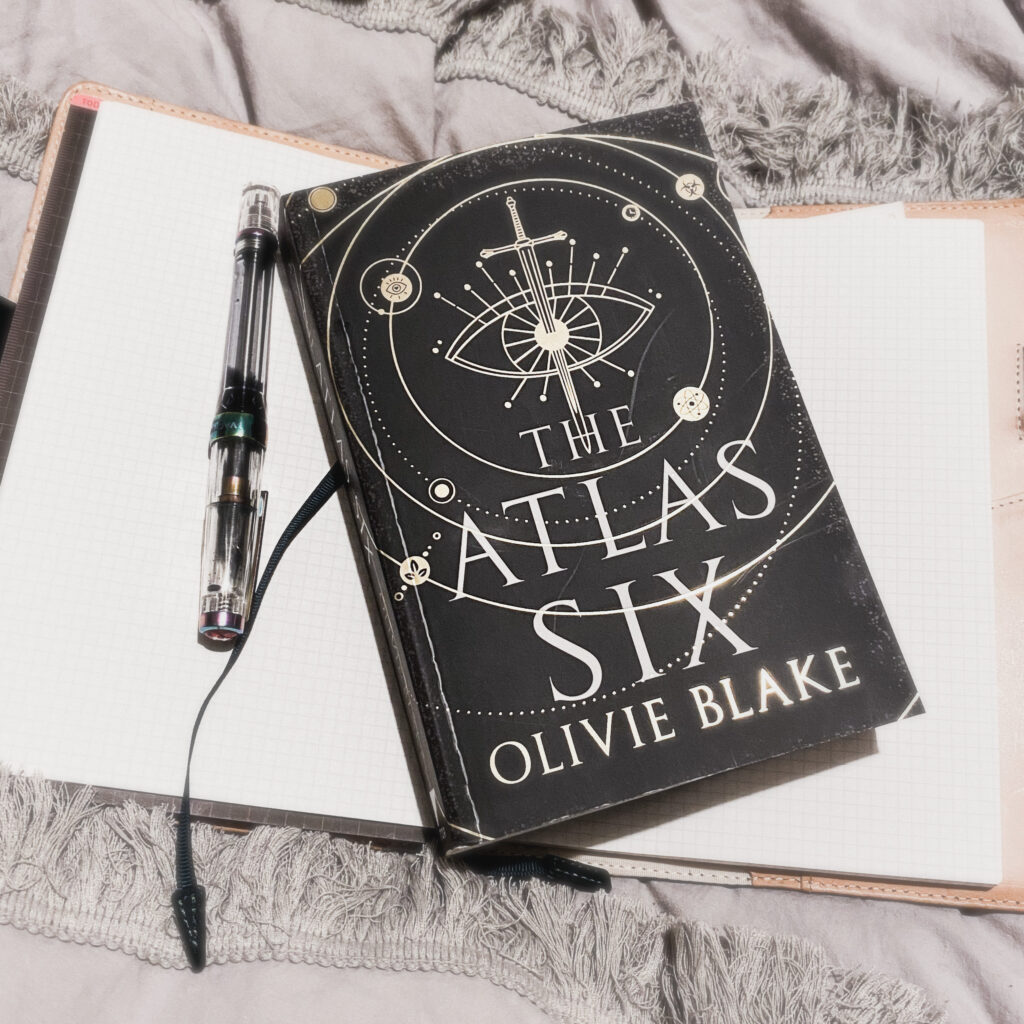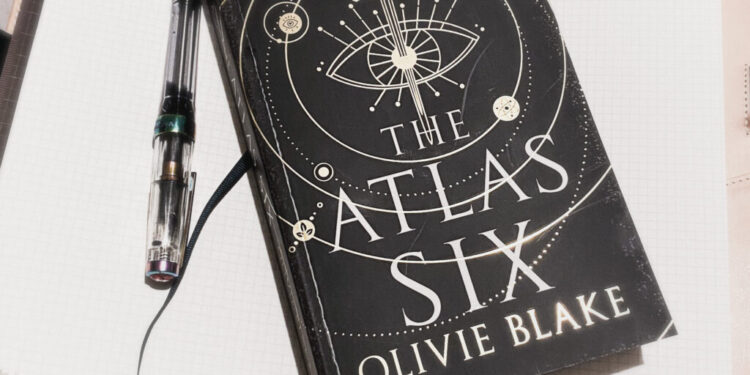Introduction
The Atlas Six Summary And Themes By Olivie Blake Olivie Blake’s The Atlas Six is a riveting dark academic fantasy that has captivated readers with its intricate plot, morally complex characters, and philosophical undertones. The novel is the first installment in the Atlas series and explores the lives of six highly talented magical individuals who are selected to join the Alexandrian Society. The Society, a secretive and powerful organization, promises access to ancient knowledge and immense power to those who succeed in their rigorous initiation process.
With its focus on ambition, loyalty, and the pursuit of knowledge, The Atlas Six blends elements of magic, science, and philosophy to create a compelling narrative. Each character’s unique abilities and personal ambitions bring a dynamic tension to the group, raising questions about morality, power, and the sacrifices required for greatness.
Summary of The Atlas Six
The Premise
The Alexandrian Society has guarded the most valuable and dangerous knowledge in the world for centuries, tracing its roots back to the Library of Alexandria. Every decade, the Society selects six of the most gifted magical individuals (known as “Medians”) to undergo a rigorous process, at the end of which only five will remain. The chosen five will gain access to the Society’s secrets, while the sixth will be eliminated—both figuratively and literally.
Read more
The novel begins with the recruitment of six exceptional Medians:
- Libby Rhodes – A physicist and a master of physical manipulation, specializing in controlling forces like gravity.
- Nico de Varona – A powerful physical manipulator, particularly skilled in thermodynamics.
- Reina Mori – A naturalist capable of controlling plants and drawing energy from life itself.
- Parisa Kamali – A telepath with the ability to read and manipulate thoughts.
- Tristan Caine – A man whose ability allows him to perceive and alter the fabric of reality itself.
- Callum Nova – An empath who can manipulate emotions, often bending others to his will.
The Selection Process
The six candidates are brought together by Atlas Blakely, the enigmatic Caretaker of the Society. They are tasked with studying the Society’s archives and proving their worth. As they navigate their roles within the group, tensions arise due to clashing personalities, conflicting ambitions, and the knowledge that one of them will not make it to the end.
Libby and Nico’s competitive dynamic, forged during their years as rivals, provides both tension and humor. Reina struggles with her connection to life energy, questioning the moral implications of her abilities. Parisa uses her telepathy to manipulate others, often sowing mistrust. Tristan grapples with the enormity of his power, while Callum’s emotional control makes him both a valuable ally and a dangerous adversary.
Unraveling the Mysteries
As the candidates delve deeper into their studies, they uncover unsettling truths about the Society. The group begins to question the real purpose of their recruitment and the ethical implications of their actions. This realization leads to shifting alliances and betrayals, as each character must weigh their desire for power against their moral compass.
Parisa discovers hidden secrets about Atlas and the true stakes of their selection process. Tristan’s unique ability becomes crucial as the group uncovers layers of manipulation within the Society. Meanwhile, Callum’s influence grows, forcing the others to confront the extent to which he controls their emotions and decisions.

The Climax
The novel builds to a climactic moment in which the six candidates must decide who among them will be eliminated. This decision forces them to confront their own ambitions and the value of their lives versus the lives of others. Betrayals come to light, and the relationships between the characters are forever altered.
The ending leaves readers with as many questions as answers, setting the stage for the sequel, The Atlas Paradox.
Themes in The Atlas Six
1. The Pursuit of Knowledge
At its core, The Atlas Six is a meditation on the pursuit of knowledge and its ethical implications. The characters grapple with questions about what knowledge is worth sacrificing for and whether the ends justify the means.
Read more
2. Power and Ambition
The novel explores the corrupting influence of power and the lengths individuals will go to achieve it. Each character’s unique ability reflects their personal struggles with control, ambition, and morality.
3. Morality and Sacrifice
The selection process forces the characters to confront the concept of sacrifice. The decision to eliminate one of their own becomes a test of their humanity and their willingness to compromise their morals for power.
4. Individualism vs. Collectivism
The group dynamic highlights the tension between individual ambitions and collective success. The characters must navigate their personal goals while working as a team, often leading to conflict.
5. The Nature of Reality
Through Tristan’s abilities and the Society’s manipulation of truth, the novel delves into philosophical questions about the nature of reality and perception.
![Page to Stage Reviews: Book review: The Atlas Six by Olivie Blake [blog tour]](https://blogger.googleusercontent.com/img/a/AVvXsEh0FggMB5U39ZsC9rXBiMQZ8EfR-XMIumLviC1UtnRG00NLF6HLf10SDO7GTWRr-8DQal3ZNTcmYi0dj9HoaDyJfRZ0FpBedXyOkK2SGCynr1gasvODi20RartFgGPRiX7GFApwa3IgEwINjqsGFHWm8_vZby3yuyZ8OUTILOiI8V5aynRYaTryBijpUQ=w1200-h630-p-k-no-nu)
Conclusion
Olivie Blake’s The Atlas Six is a thought-provoking and intricately woven narrative that challenges readers to ponder the nature of power, knowledge, and morality. Through its diverse cast of characters and richly imagined world, the novel offers a gripping exploration of ambition and sacrifice.
With its blend of magic, philosophy, and dark academia, The Atlas Six has cemented itself as a standout work in contemporary fantasy. Whether you’re drawn to its morally complex characters, its philosophical musings, or its gripping plot twists, the novel promises an unforgettable journey into the depths of human desire and the cost of ultimate knowledge.
Read more
(FAQ)
1. What is the Alexandrian Society?
The Alexandrian Society is a secretive organization dedicated to preserving and controlling knowledge, inspired by the lost Library of Alexandria. It serves as both a source of immense power and a symbol of the moral dilemmas associated with such power.
2. Do the characters have equal roles in the story?
While the novel gives each character their own narrative arc, some characters, like Libby, Nico, and Parisa, take on more prominent roles. However, all six are integral to the story’s themes and conflicts.
3. Is The Atlas Six part of a series?
Yes, it is the first book in the Atlas series. The sequel, The Atlas Paradox, continues the story, and a third installment concludes the series.
4. What genre is The Atlas Six?
The novel is a blend of dark academia, fantasy, and philosophical fiction, with elements of science and magic.
5. How does the novel handle diversity?
The characters are diverse in terms of their cultural backgrounds, personalities, and abilities. The novel explores their identities as part of their individual arcs.
6. Is The Atlas Six suitable for young readers?
The novel is intended for an adult audience due to its mature themes, complex character dynamics, and philosophical depth.
7. What are the central conflicts in the story?
The central conflicts revolve around the characters’ internal struggles, their interactions with one another, and their collective challenge to uncover the Society’s true purpose.
Read more
















